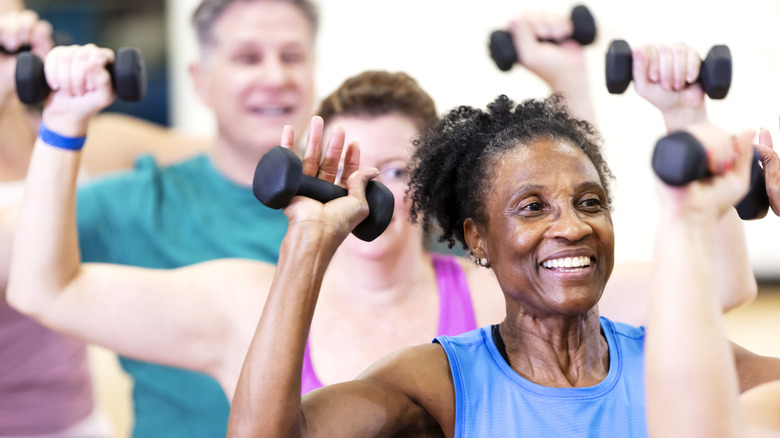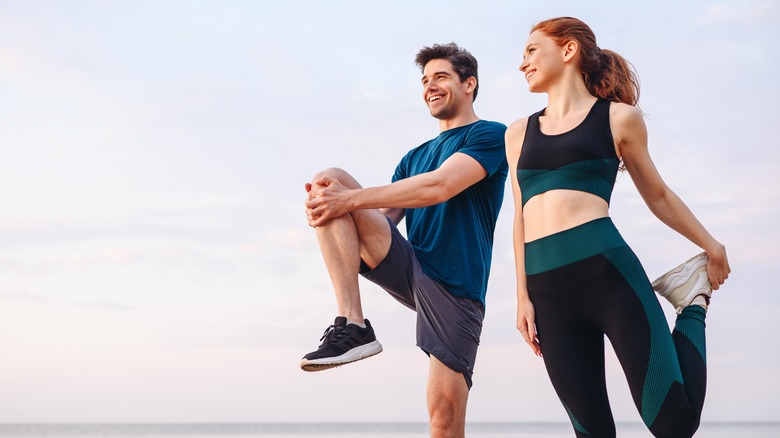One Type Of Exercise Is Excellent For Your Skin, According To A New Study
Exercise boasts many benefits, such as managing your weight, boosting your immune system, and improving mental health. Yet there's a common belief that exercise might exacerbate skin conditions such as acne or rosacea. Sure, if you wear heavy makeup while you exercise, you're more likely to clog your pores. As a whole, however, exercise can be great for your skin because it improves blood flow, which helps the body remove waste, according to U.S. Dermatology Partners. Because exercise also helps reduce stress, you're less likely to aggravate stress-related skin conditions such as acne or eczema (via the American Academy of Dermatology Association).
What about exercise and skin aging? According to Everyday Health, mitochondria in your skin's cells produce adenosine 5'-triphosphate (ATP), which repairs skin and makes it look youthful. Over time, these mitochondria make less ATP, but exercise helps boost it. According to a 2023 article in Scientific Reports, resistance training specifically can improve your skin by thickening its middle layer, which often thins with age.
How weight training improves skin health
The study compared aerobic training and resistance training in skin aging in inactive middle-aged women in Japan. They had half of the women use a stationary cycle twice a week, and the other half lifted weights twice a week. After 16 weeks, the researchers noted that both groups had improved the elasticity of their skin, particularly the top layer of their skin. Both forms of exercise influenced the circulating inflammatory cytokines and hormones in the skin that can affect aging. The aerobic exercise group increased levels of interleukin-15, which is a cytokine that can improve the skin's structure.
The group that focused on resistance training had thickened the middle layer of their skin, the dermis. The dermis typically gets thinner with age. The researchers believed that resistance training increases dermal biglycan, which tends to decrease with aging and sun exposure. Strength training also affects the gene expressions associated with the skin's structure and age-related inflammation of the skin.
Any exercise can improve the skin
Dermatologists told Allure that weight training can affect the collagen-producing mitochondria in ways that aerobic exercise cannot. But it's important to remember that any type of exercise can boost endorphins in your body to improve your skin.
Habitual exercisers tend to have younger-looking skin, according to a 2015 study in Aging Cell. Although people who exercised more than four hours a week had a thinner outermost layer of their skin, older exercisers tended to have less thinning of the deeper layers of their skin compared to non-exercisers. They also didn't have as much age-related collagen loss.
There's a myth that endurance runners might be more susceptible to skin aging (and sagging) due to the excessive bouncing of their faces. This "runner's face" has less to do with exercise and more to do with long-term sun exposure and low body fat, according to Healthline. We tend to lose collagen and skin elasticity as we get older.



